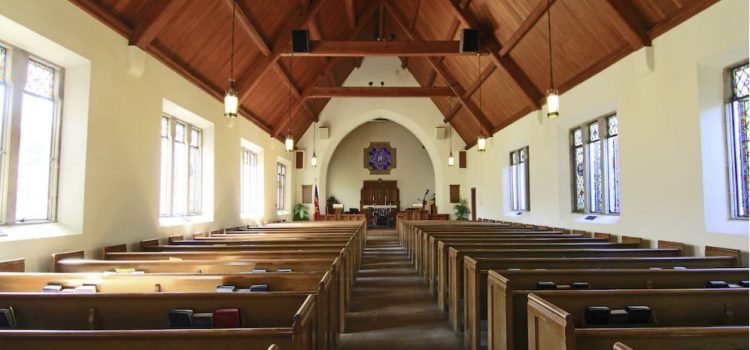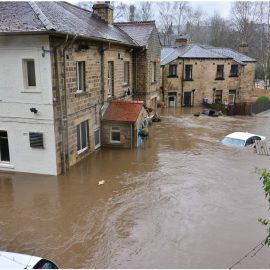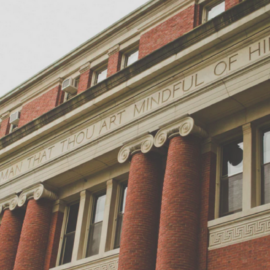
This is a free excerpt from one of Shortform’s Articles. We give you all the important information you need to know about current events and more.
Don't miss out on the whole story. Sign up for a free trial here .
How is the decline of religion in America affecting the political parties? How do some members of Congress exploit religion?
Churches are closing across America and each generation is becoming less religious than the last. Shockingly, the trend isn’t having the effect on politics that most would expect.
In this article, we’ll examine what this could mean for the political future of America.
Religious Demographics in America Are Changing
A new report from the Public Religion Research Institute (PRRI) showed some significant demographic shifts in America’s religiosity that could have significant implications for the future political landscape.
The report, which surveyed 6,600 adults from all 50 states, found that the proportion of Americans who identify as “religiously unaffiliated” has risen steadily. Between 2006 and 2023 that number rose from 16% to 27%, and the proportion who said religion is the most important thing in their lives declined at a similar rate. The research also found that more than half (57%) of respondents seldom or never attend religious services—a 14-point increase from a decade ago—and 24% have changed religious affiliation, with most of those leaving Christianity or religion altogether.
As the religious and political landscape continues to evolve, it’s vital to understand the implications of these changes for American society. The decline of religion in America, and associated political alignments, pose both challenges and opportunities for religious groups and political parties. Adapting to these transformations will be essential in shaping the future of religion and politics in the US.
How Do Religious Changes Affect Politics?
What makes religious trends particularly significant for politics is how they’ll affect the “God Gap,” which refers to the notion that the Republican Party has traditionally been favored by religious individuals, primarily Christians, while Democrats have increasingly embraced secularism over time.
Over the past three decades, the percentage of non-religious Americans has quadrupled, and in the 2020 election, 46% of votes cast for Joe Biden came from non-religious voters. On the face of it, this would seem to indicate an increasingly Democratic future for the US. But other trends may be pushing the country in the opposite direction.
Trends That Favor Democrats
Two major trends in religiosity point toward gains for Democrats in the future: an overall decline in religious affiliation and a particularly low affiliation among younger generations. Almost half of Generation Z identifies with no religion, as compared with 44% of Millenials, 35% of Gen X, and 26% of Baby Boomers. This trend indicates a more secular future for America overall. The closure of churches across the country reflects this trend. Between 6,000 and 10,000 churches shut down annually, either repurposed or demolished, highlighting the secularization of society.
Trends That Favor Republicans
Conversely, Republicans have seen increasing support in regions where churches are flourishing. This is largely happening in areas that are seeing a large influx of Latin American immigrants, who tend to be religious and embrace conservative cultural values.
Miami-Dade County exemplifies this trend. Of the 16 counties in the United States with populations exceeding two million, only Miami-Dade experienced an increase in religiosity of at least 10%. This poses a daunting challenge for Democrats in Florida during the upcoming 2024 election, as the growth of religious institutions in the area suggests a strong presence of religiously motivated voters.
Texas is another area where the shifting religious landscape may work against Democrats. Several counties near the border with Mexico have seen substantial increases in religious affiliation between 2010 and 2020. This growth can be attributed, in part, to the influx of Mexican immigrants. Democrats have faced difficulties in securing the Hispanic vote in recent election cycles, especially in areas where religion plays a significant role.
The Role of White Christian Nationalism
Some scholars of religion believe that the American church has the potential for a revival due to this influx of Christian immigrants, particularly from Latin America and Asia. These immigrants bring their religious fervor and can contribute to revitalizing the religious landscape of the US. However, this trend clashes with the rise of a White Christian Nationalist movement, which tends to be hostile toward non-white immigrants. This leads them to exclude these immigrants who could potentially contribute to the growth and revitalization of their churches.
Congress Doesn’t Reflect the Population
Another factor that may indicate a smaller political impact than the data seem to suggest is that the religious makeup of Congress is not representative of the American population. While nearly 30% of Americans claim no religious affiliation, only two out of the 534 members of Congress (less than one percent) identify as non-religious.
One of those is Jared Huffman (D-CA), who identifies as a humanist. According to Huffman, many of his colleagues in Congress exploit and weaponize religion for political purposes without having an authentic connection to the religion they use.
So, because religious affiliation remains stable in the country’s leadership, despite the declines among the general population, we may see a smaller impact from these declines reflected in our laws and policies.

Want to fast-track your learning? With Shortform, you’ll gain insights you won't find anywhere else .
Here's what you’ll get when you sign up for Shortform :
- Complicated ideas explained in simple and concise ways
- Smart analysis that connects what you’re reading to other key concepts
- Writing with zero fluff because we know how important your time is






